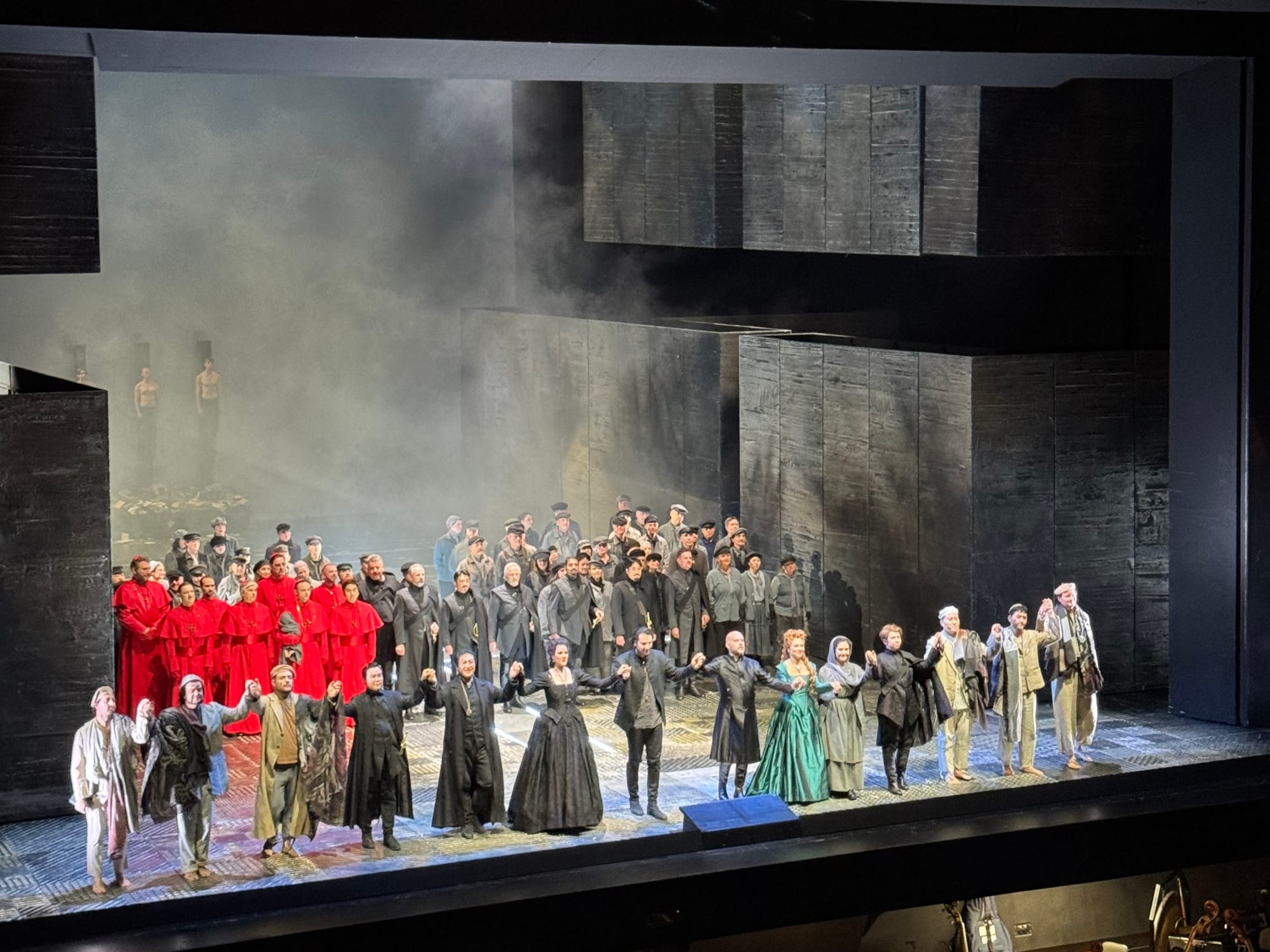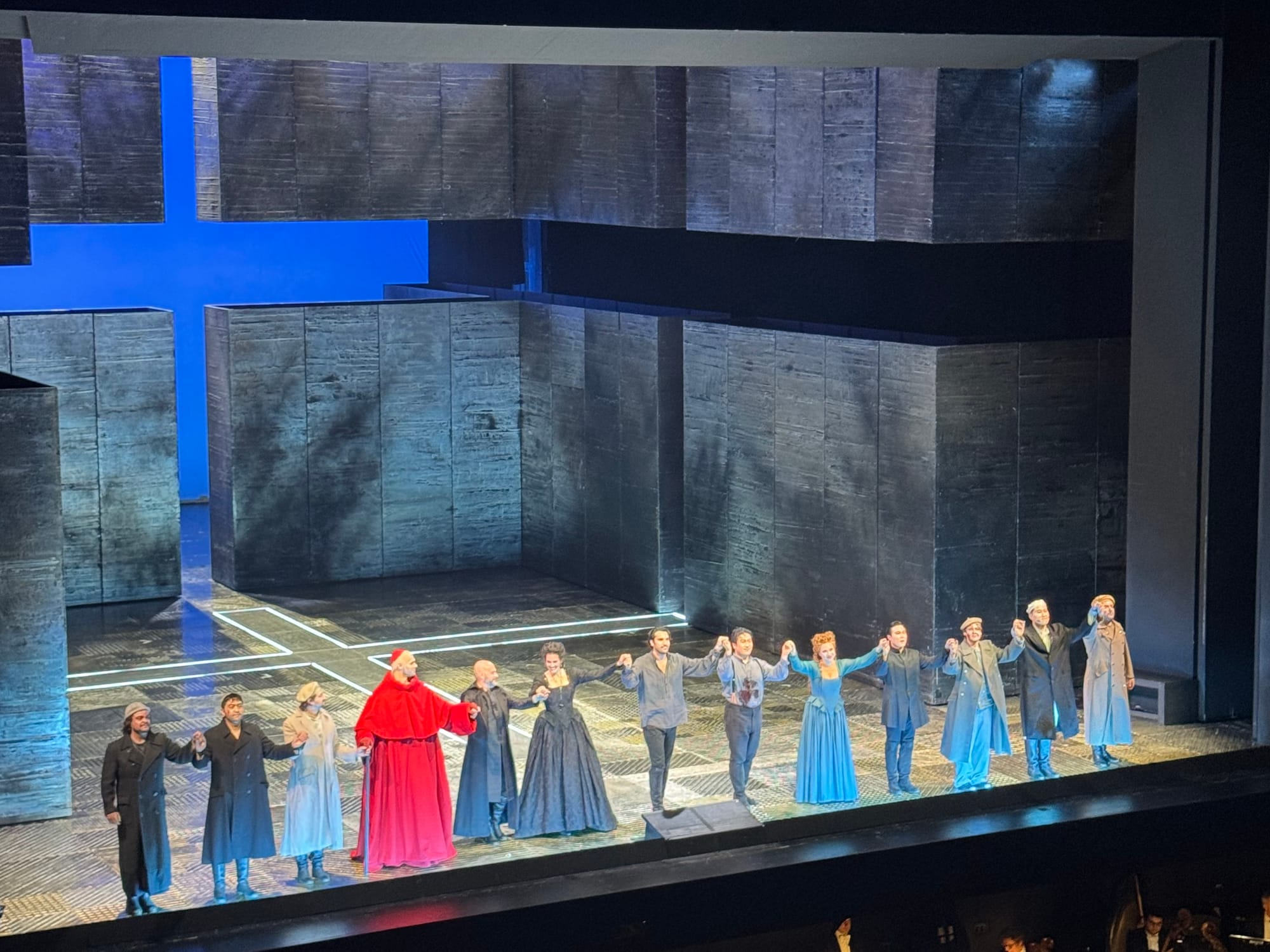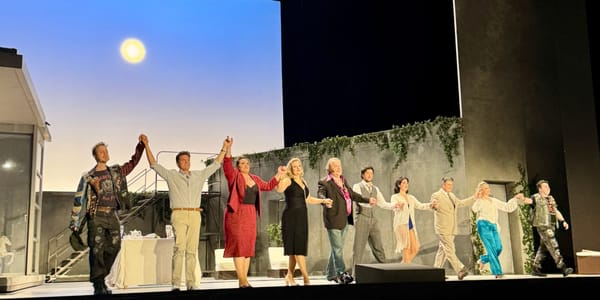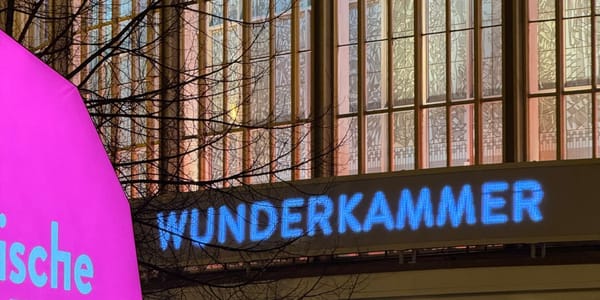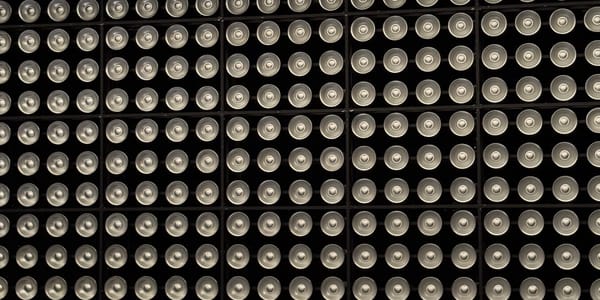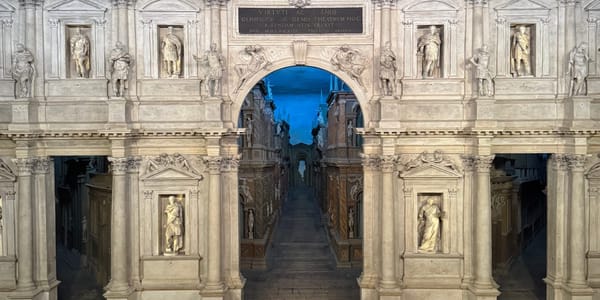Don Carlo at Deutsche Oper Berlin
A meditation on individual agency and love, caught and ground down between the machinery of faith and the weight of worldly power.
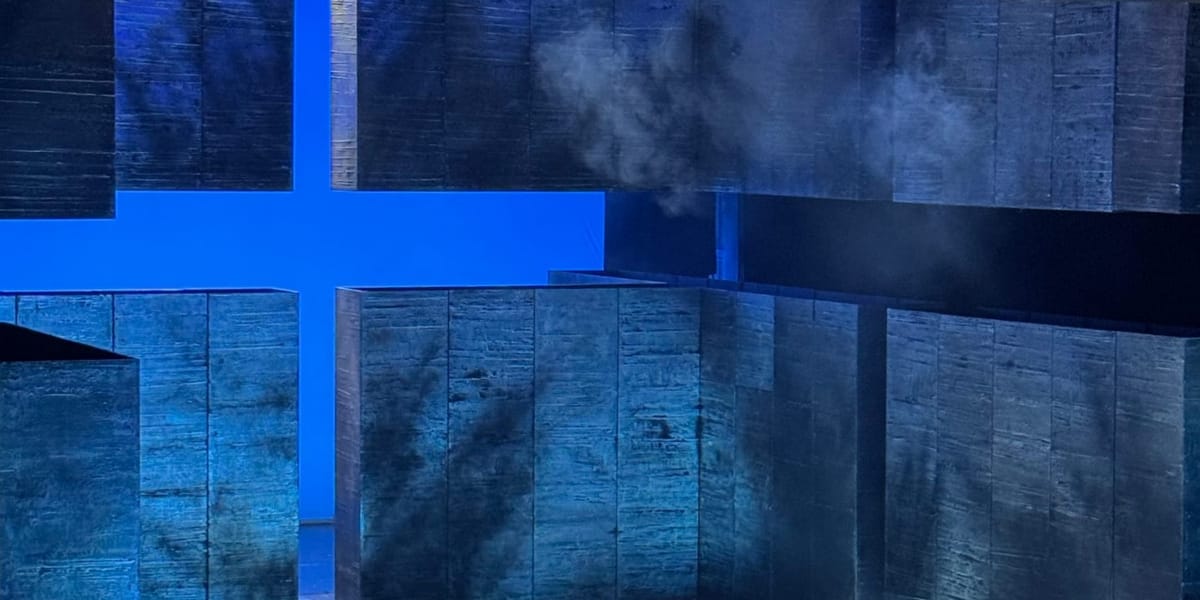
🎭 Don Carlo
🎶 Giuseppe Verdi, 1884
💭 Marco Arturo Marelli, 2011
🏛️ Deutsche Oper Berlin
🗓️ 25.05.2025
“THE THRONE IS ALWAYS BENEATH THE ALTAR“
Imagine a world where religion is not just a matter of faith but the ultimate seat of power—where kings are mere vassals in an empire ruled by the Church. That’s the world Verdi paints in Don Carlo, and in this Deutsche Oper Berlin production, it felt less like 16th-century Spain and more like a chapter out of Dune: a brutalist, Catholicism-drenched techno-feudalist universe where power is absolute, oppressive, and eternal.
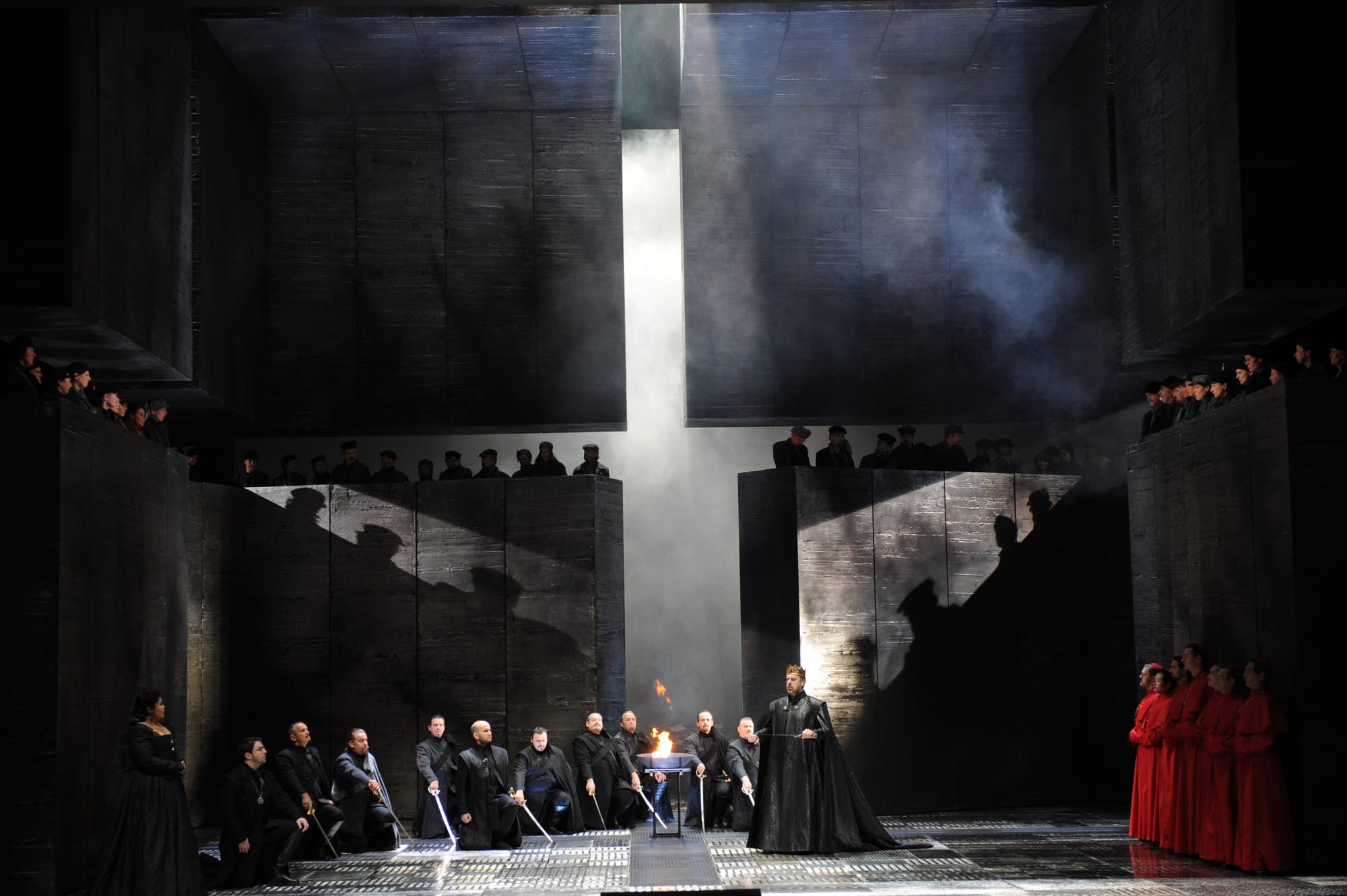
The staging makes that connection almost literal. Massive rotating walls—Tetris-like slabs of concrete—shift and slot into new configurations, creating an ever-changing architectural puzzle of corridors, chambers, and prison cells. Sometimes these walls align to form a perfect cross; sometimes descending panels complete the illusion of being trapped inside a concrete crucifix. The throne, as the opera reminds us, sits beneath the altar. In other words, the real sovereign is not Philip II but God, and by extension, the Inquisition. It’s a pointed visual metaphor for the political dichotomy at the heart of the opera: monarchs may reign, but the Church rules.
This production leans into that dichotomy with remarkable clarity. The Grand Inquisitor—played with unnerving gravitas, and looking eerily like a Baron Harkonnen in his flowing, almost otherworldly robes—is the embodiment of institutionalized terror. The people obey Philip and Elisabetta, but they fear the Inquisitor. That fear underpins everything, making even royal love affairs feel like treason against divine order.
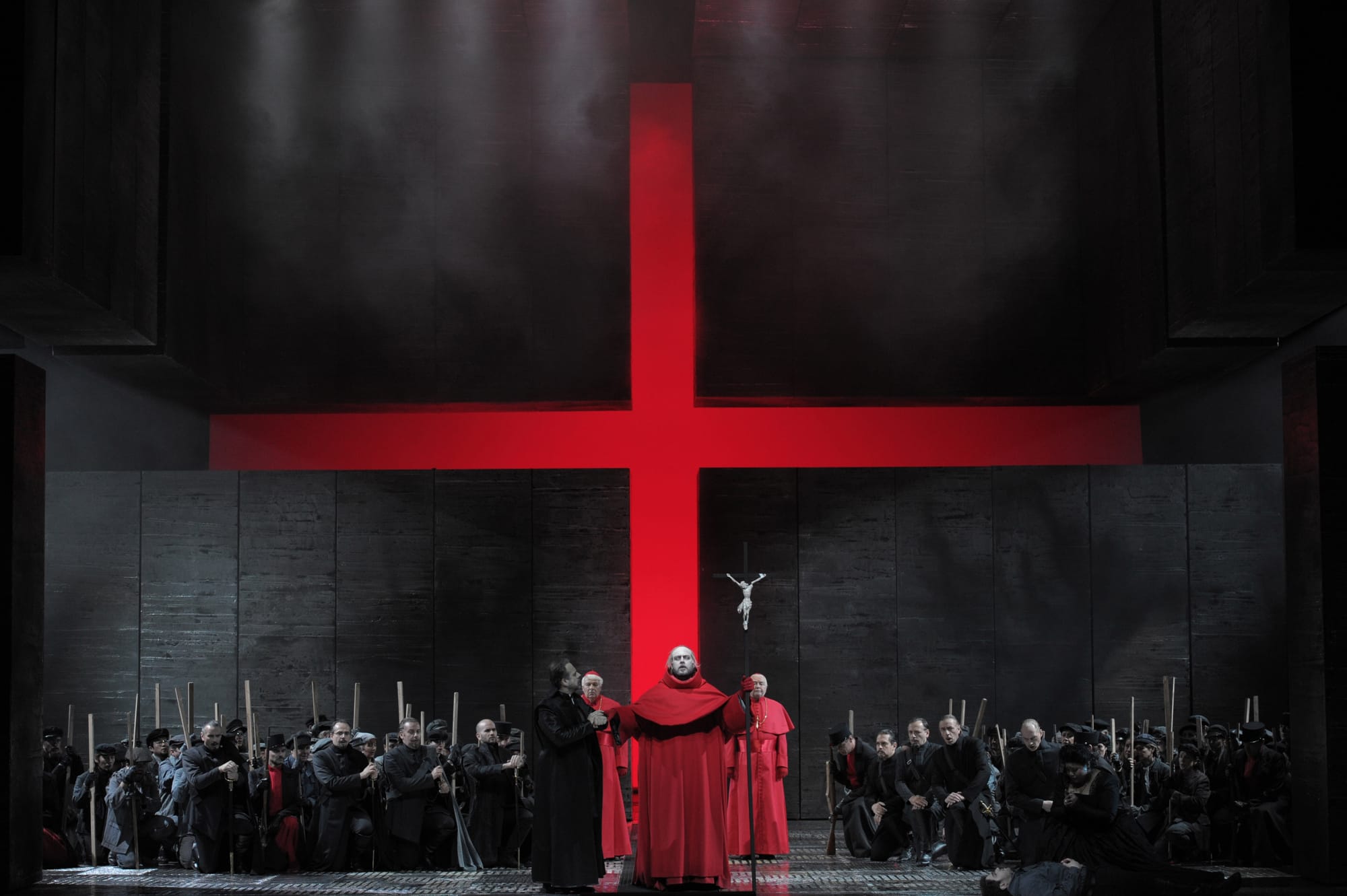
And yet, this is also classic Verdi: individuals trapped by their roles in a rigid societal corset, longing for personal freedom. Jonathan Tetelman (Don Carlo) and Federica Lombardi (Elisabetta) captured that tension beautifully, their chemistry radiating through every conflicted glance and restrained touch. Yes, their love is passionate, but it’s also futile—doomed not just by family ties (she is, after all, married to his father) but by the larger machinery of politics and faith grinding them down.
The costumes, rich and historically evocative, underscore that tension between opulence and oppression. They whisper of Renaissance extravagance, but in this stark sci-fi setting, they feel like the trappings of a dying aristocracy clinging to ceremonial grandeur while real power sits in the shadows. It’s a dynamic with eerie contemporary parallels: Swap priests for corporate boards, and this could be our own near-future techno-feudalist society—an era where freedom is an illusion, and power is held by unaccountable institutions cloaked in ideology.
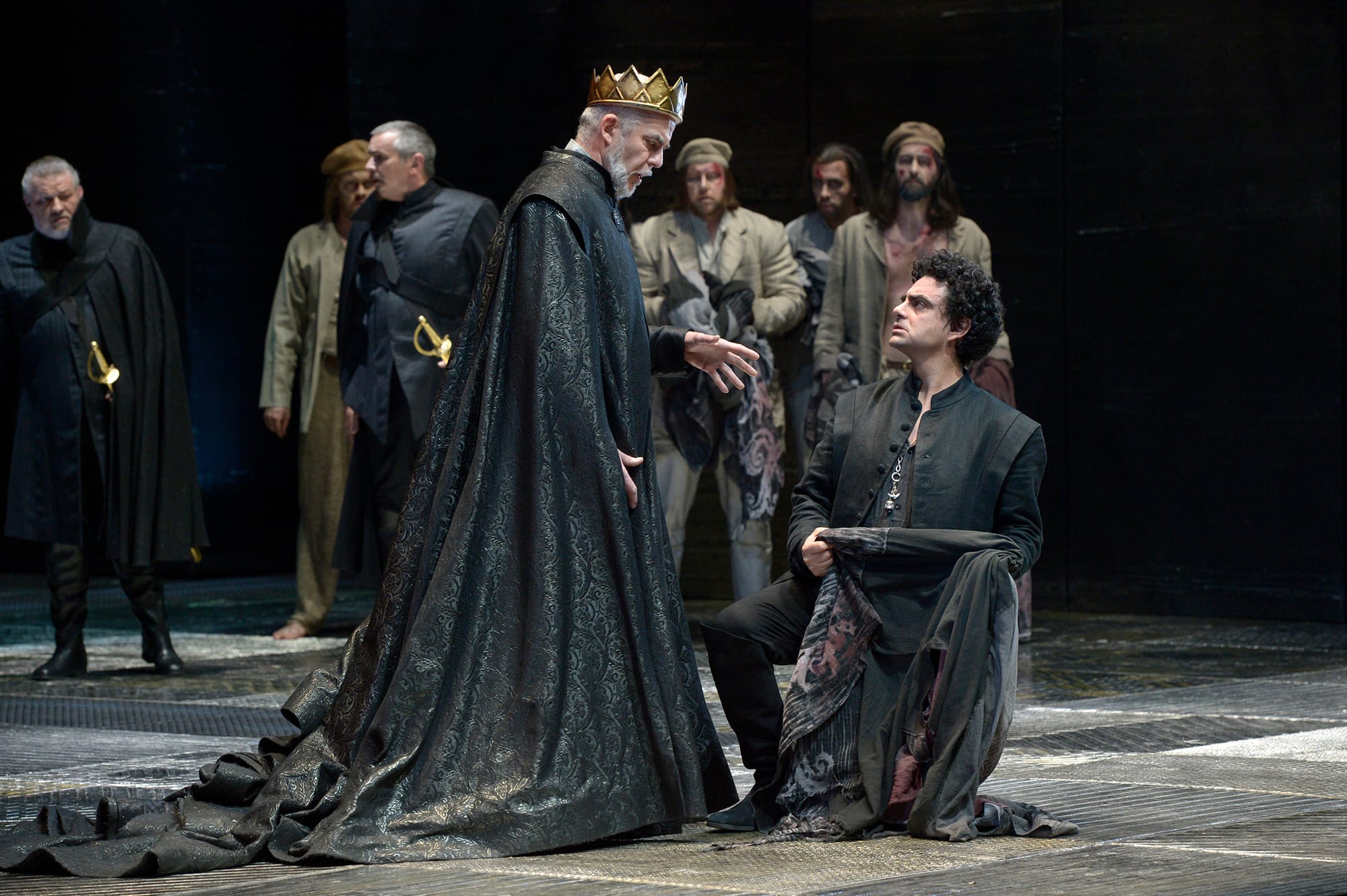
The tragedy of Don Carlo lies precisely in that inevitability. The lovers perish, the Inquisition endures, and the only solace offered is a pious one: “For us, the eternal future begins now.” It’s a line that would have reassured Verdi’s 19th-century audiences but lands differently in secular Berlin. Here, it reads more like an indictment—proof that institutional religion was (and is) sometimes used to justify worldly injustice.
Timeless, oppressive, and strangely prophetic, this Don Carlo blurs past and future into one chilling vision. Whether you read it as Renaissance Spain or a Dune-inspired dystopia, the message is the same: when the altar towers over the throne, personal freedom is the first sacrifice.
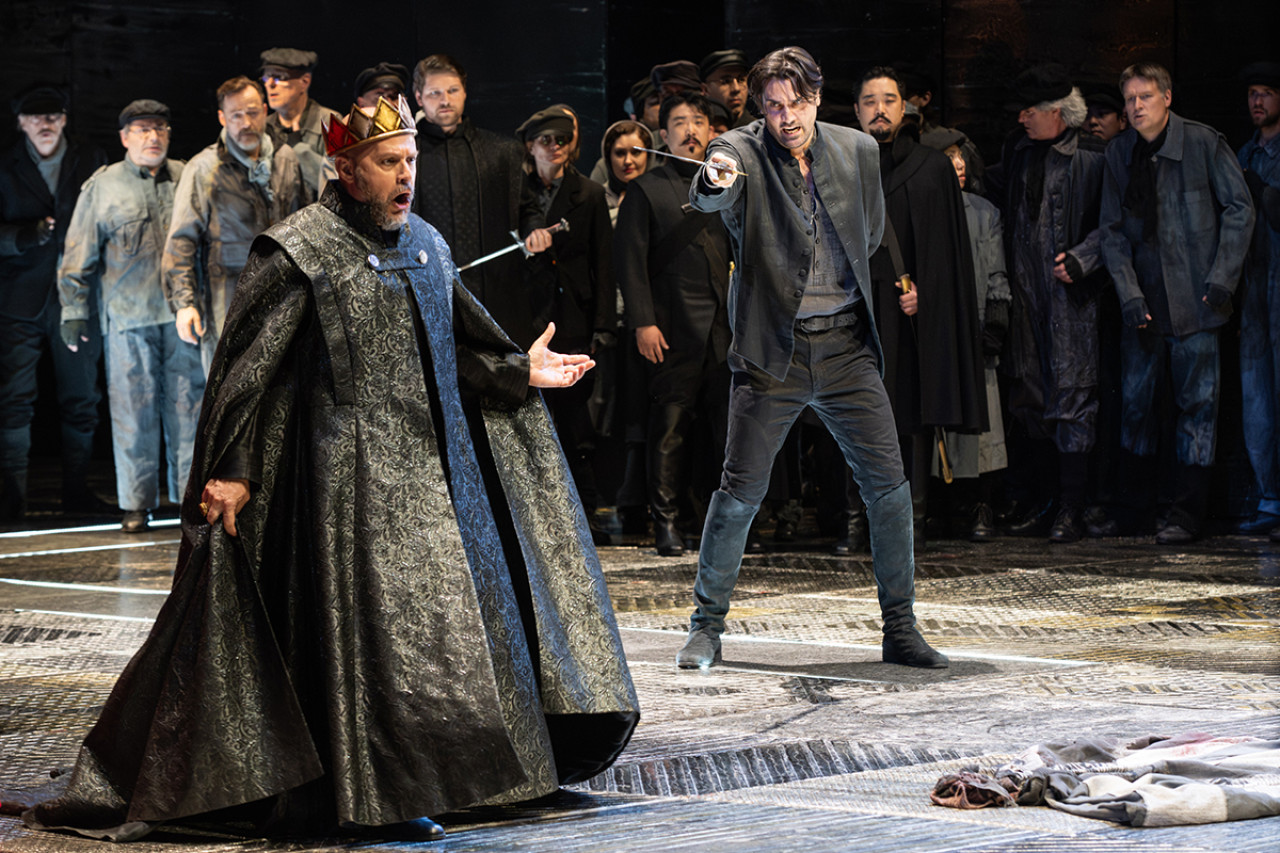
Cast
Conductor Sir Donald Runnicles
Stage Director, Stage Design, Lighting Marco Arturo Marelli
Costume Design Dagmar Niefind
Chorus Master Jeremy Bines
King Philip of Spain Alex Esposito
Don Carlo Jonathan Tetelman
Rodrigo, Marquis of Posa Gihoon Kim
Count of Lerma / Herold Kangyoon Shine Lee
Inquisitor Patrick Guetti
A monk Gerard Farreras
Elisabeth of Valois Federica Lombardi
Princess of Eboli Irene Roberts
The page Thibaut Maria Vasilevskaya
A voice Lilit Davtyan
Flemish deputies Stephen Marsh, Gerard Farreras, Joel Allison, Youngkwang Oh, Jared Werlein, Geon Kim
Chorus Chor der Deutschen Oper Berlin
Orchestra Orchester der Deutschen Oper Berlin
